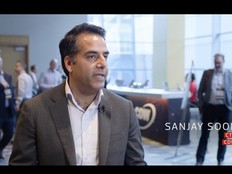Management
Real-World Business Advice from a Friendly Hacker
If your idea of a hacker is based on the representation in pop culture, you're likely to assume all hackers are malicious, anti-social, hoodie-wearing deviants who sit in dark rooms and consume energy drinks by the boatload. But Keren Elazari, an author, researcher and self-described friendly hacker, says that there's been a major shift in what hackers actually do. Many work alongside companies to identify bugs or vulnerabilities, while others are brought on as staff to perform continuous penetration testing or help with security awareness training and more.
We spoke with Keren at the CDW Protect SummIT in Phoenix after her conference keynote, to get a better understanding of the advice she gives to businesses, on both the line-of-business and IT sides, on how hackers can help, not necessarily hurt, their operations.
Participants
- Keren Elazari, cybersecurity analyst, author, speaker and researcher
Video Highlights
- Hacker isn't a bad word. There are many flavors of hacking, including white hat versus black hat, and many hackers are, in fact, going corporate and being hired as staff.
- Bug bounty programs, run by Microsoft, Google, Uber, Facebook and others, really opened the door for more honest and open collaborations between businesses and hackers.
- Keren recommends that companies get to know themselves first by hacking their own organization, technically or culturally, from the outside in, so they have a sense of how malicious actors might be able to gain access.






